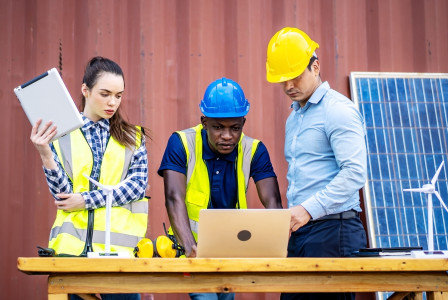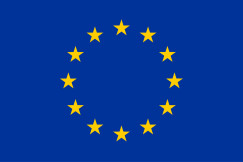Crosscutting EU policies & legislation
26 June 2025
Report from the European Commission to the European parliament and the council - Progress on competitiveness of clean energy technologies
Crosscutting EU policies & legislation
26 June 2025
Building block 3: Enabling framework
Building block 4: Research, Innovation, Technology
Building block 5: Funding
+3 more
Login / create an account to be able to react
-
20

2025 Competitiveness Progress Report (CPR) on clean energy: a comprehensive evaluation of the trends and challenges of net-zero technologies and their manufacturing in the EU.
Editorial team
European Commission
Topics
EU-27
EU Institutions
Financial Institutions and Investors
SMEs (a company with less than 250 employees)
-
Transition Pathway Strategic Areas
-
-
Building block 3: Enabling framework
-
Building block 4: Research, Innovation, Technology
-
Building block 5: Funding
-
Building block 6: Towards a fair and safe built environment
-
Building block 1: Competitiveness
-
Building block 2: Skills and talent
-
Share
The 2025 Progress Report on Competitiveness of Clean Energy Technologies evaluates the EU's standing in the global clean energy sector. In 2024, renewable sources accounted for 48% of the EU's electricity mix, reflecting significant progress. However, challenges persist, including high energy costs, supply chain dependencies, and labour shortages, which impact the EU's competitiveness.
An increased investment in increased investment in research and innovation is needed, particularly in wind energy and heat pumps.
Strengthening manufacturing capacities and securing resilient supply chains is also pivotal.
These efforts align with broader initiatives such as the Clean Industrial Deal and the Affordable Energy Action Plan, aiming to ensure a sustainable and competitive energy future for the EU.
The EU shows strong progress in clean energy, leading in heat pumps, hydropower, and renewables, but faces challenges in costs, supply chains, and scaling battery and nuclear tech.
To fully reap the economic benefits of the global energy transition, it is essential for the EU to increase its manufacturing capacity. A value chain approach remains crucial, taking into account the entire chain from raw materials, via energy-intensive industries for materials, to manufacturing and final installation.
#EnergyTransition #Sustainability
Documents
Comments (0)
See also
President Ursula von der Leyen establishes Project Groups to deliver on political priorities
- Categories
- Building block 4: Research, Innovation, Technology Building block 5: Funding Building block 6: Towards a fair and safe built environment +2 more
Earth Observation in support of EU policies for urban climate adaptation
- Categories
- Building block 4: Research, Innovation, Technology Building block 5: Funding Building block 6: Towards a fair and safe built environment +2 more
Italy introduces guidelines for satellite data in structural monitoring
- Categories
- Building block 4: Research, Innovation, Technology Building block 5: Funding Building block 6: Towards a fair and safe built environment +2 more




